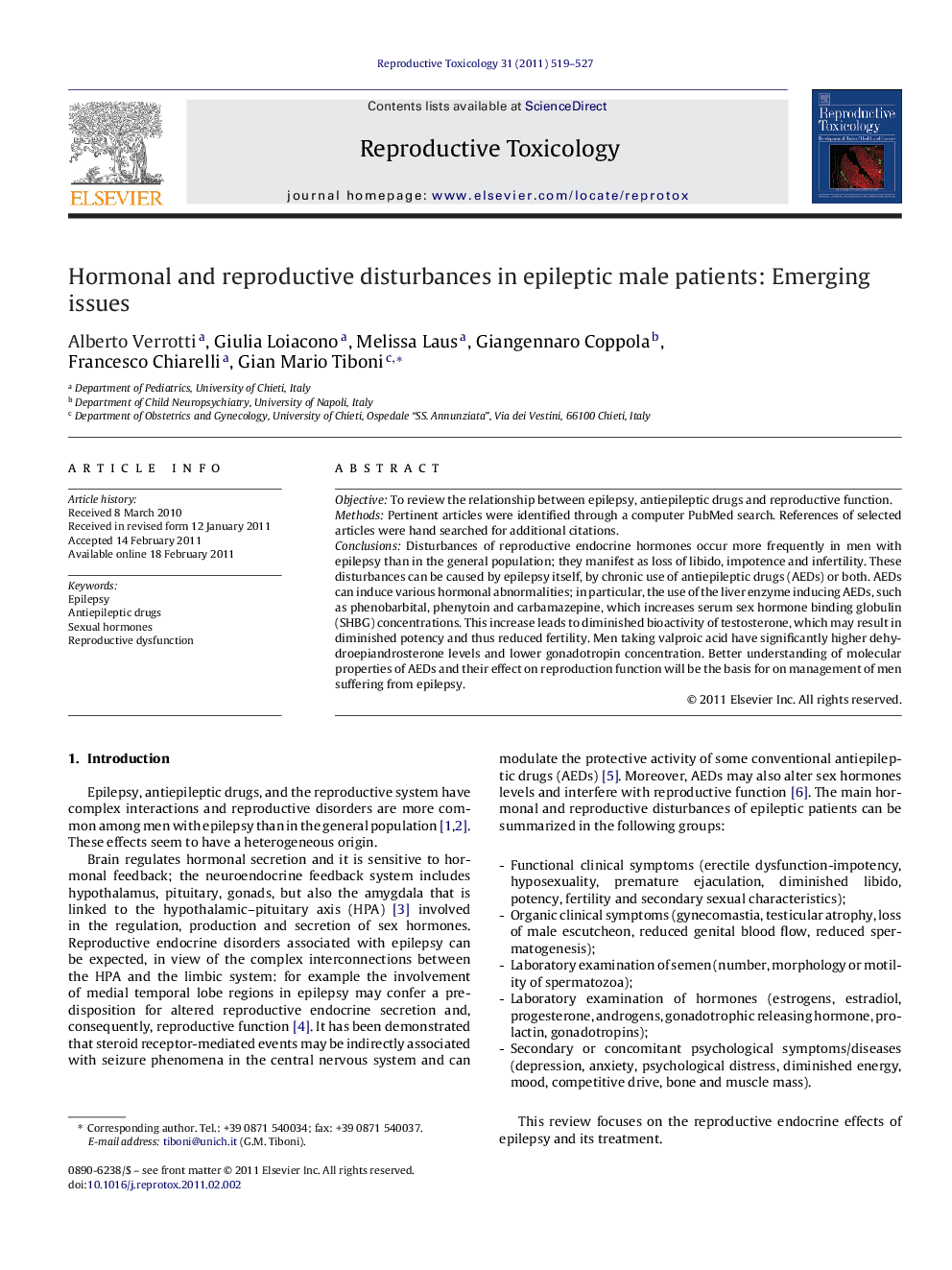| Article ID | Journal | Published Year | Pages | File Type |
|---|---|---|---|---|
| 2594351 | Reproductive Toxicology | 2011 | 9 Pages |
ObjectiveTo review the relationship between epilepsy, antiepileptic drugs and reproductive function.MethodsPertinent articles were identified through a computer PubMed search. References of selected articles were hand searched for additional citations.ConclusionsDisturbances of reproductive endocrine hormones occur more frequently in men with epilepsy than in the general population; they manifest as loss of libido, impotence and infertility. These disturbances can be caused by epilepsy itself, by chronic use of antiepileptic drugs (AEDs) or both. AEDs can induce various hormonal abnormalities; in particular, the use of the liver enzyme inducing AEDs, such as phenobarbital, phenytoin and carbamazepine, which increases serum sex hormone binding globulin (SHBG) concentrations. This increase leads to diminished bioactivity of testosterone, which may result in diminished potency and thus reduced fertility. Men taking valproic acid have significantly higher dehydroepiandrosterone levels and lower gonadotropin concentration. Better understanding of molecular properties of AEDs and their effect on reproduction function will be the basis for on management of men suffering from epilepsy.
